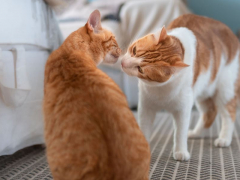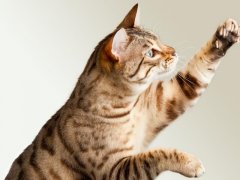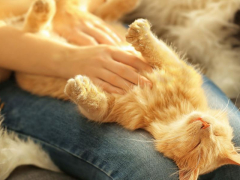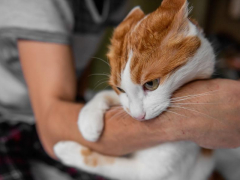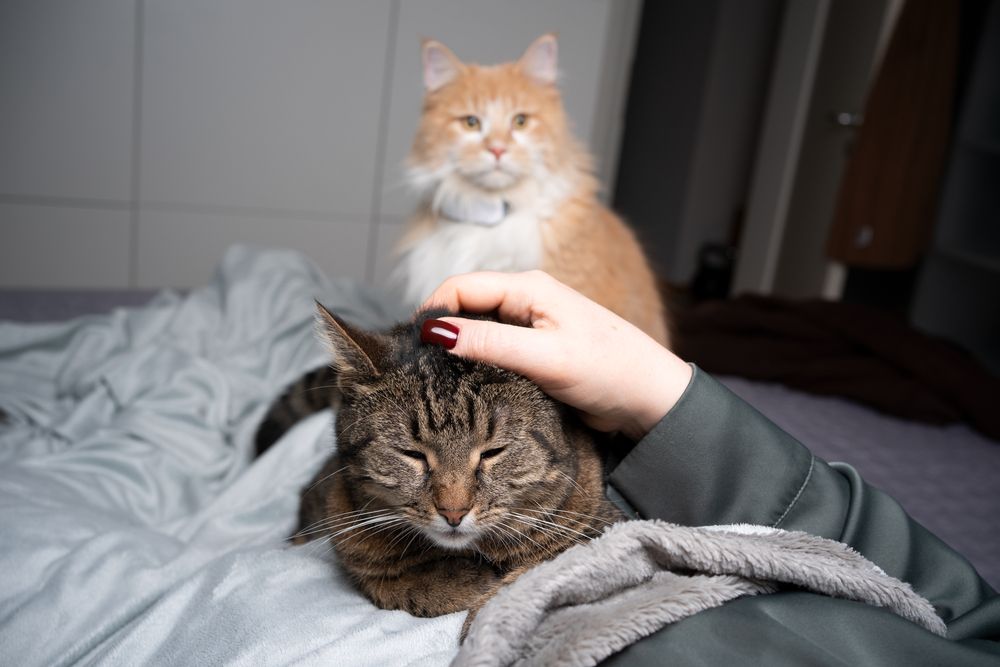
Are you worried that your beloved cat feels jealousy or other unpleasant emotions? If so, you’re not alone. Many cat owners eventually find themselves wondering if their cats feel particular emotions. Pets are considered by many scientists to be emotionally intelligent, and recent studies indicate that felines can pick up on some of their owner’s emotions.1
However, jealousy is a complex emotion, and it is difficult to interpret our cat’s behaviors so specifically. A “jealous cat” may actually be struggling with feelings of insecurity, anxiety about territory, or the introduction of a new pet or new family member into their own space.
Why Might a Cat Be Jealous?
Cats are territorial and have strong survival instincts to protect their own resources and bonded companions. It makes sense that certain situations, such as a new pet or a sudden lack of owner attention, may induce jealous feelings. Jealousy, according to the dictionary, is a feeling of hostility towards a rival, or one believed to enjoy an advantage. So what triggers might inspire a cat’s jealousy?
1. New Baby or Pet
Cats are creatures of habit and they are territorial. This makes for an interesting combination when their routine changes, such as when new people or animals are introduced into their space.
For us humans, the introduction of a new puppy, kitten, or even baby is usually a planned, exciting, and long-awaited event. But for a cat, it comes as a complete surprise – and as far as they’re concerned, it’s often not a good one.
The arrival of a newcomer can have negative consequences for an established cat, such as increased noise, a change to routine, a lack of personal space, having to share toys, and losing out on extra attention. So it’s no wonder that a cat will react to these changes in their lives with some hostility that certainly looks like what we consider jealousy.
2. Other Cats
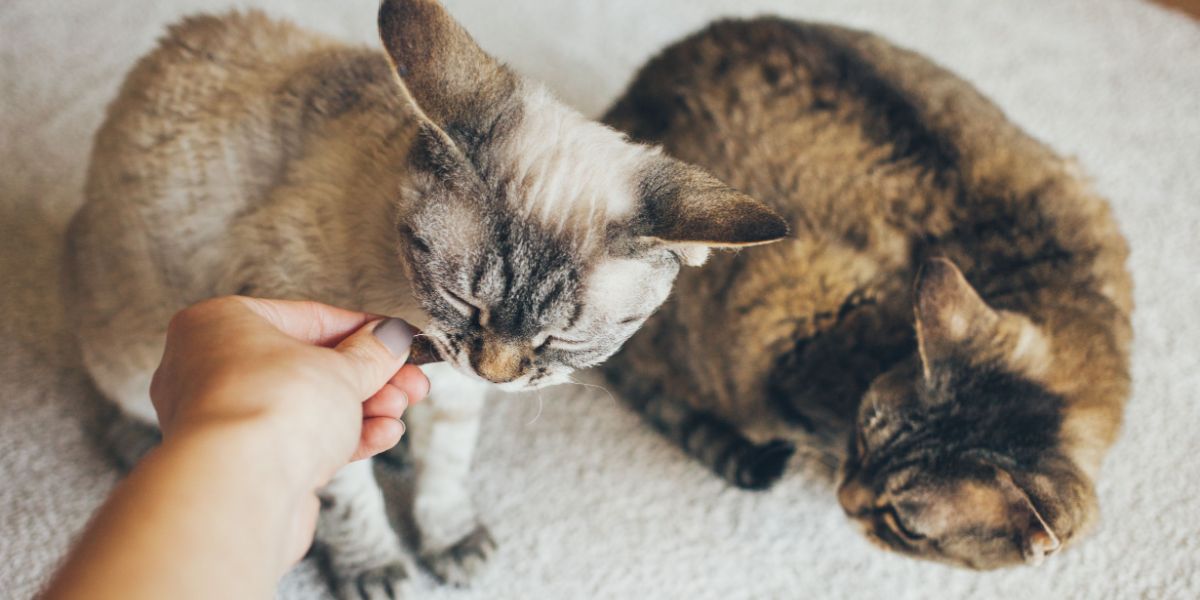
Cats compete for resources like food, litter boxes, and toys, and can display jealousy if another cat enjoys these necessities at their expense.
It may not only be new pets who inspire jealousy in our cat companions. Competition for our attention and resources can also run high in established multi-cat households. Relationships can be complicated when there is more than one cat in an environment.
Each cat’s personality and needs differ, and each cat has a strong survival instinct to protect valuable resources. Cats can become possessive over owners, toys, food, and beds, especially if any of these vital needs are in short supply.
3. Time
Cats often have a strong bond with their owners and love to spend time with them. When life gets in the way of that – work, family, trips, and so on – cats can feel put out. Quite frankly, you’re their world (and the pressure is real!) and a sudden change in their relationship, affection, or the time spent with you can induce anxiety and signs of jealousy.
How Do Cats Show Jealousy?
One of the reasons that we love cats so much is that they are all so different. Cat behaviors, just like their personalities, differ from cat to cat, but often strong emotions in cats can come across as characteristic “bad behaviors.”
Jealous behavior may include:
- Territorial behavior: scratching carpet and furnishings and urine marking/spraying outside the litter box
- Destructive behavior
- Aggressive behavior: hissing, swatting, growling, and even biting
- Altered interactions with owners: hiding away, petting aggression, reduced play or attention-seeking behaviors
Do We Really Know It’s Jealousy?
I’m sure most pet owners have wished more than once that they could speak with their cats. It’s difficult to know for sure if cats experience jealousy, or whether their behaviors can be explained away in other ways. We all know that our cats have their own personalities, likes, dislikes, emotions, and needs, and it’s certainly possible that cats can be jealous or envious.
However, the behaviors described above may be due to other causes – both behavioral and medical. Stress, fear, boredom, and pain can all present as difficult behaviors in cats, as can certain health conditions. Cats are very good at showing us that something is troubling them – we just need to work out what it is, and how to help.
How To Help
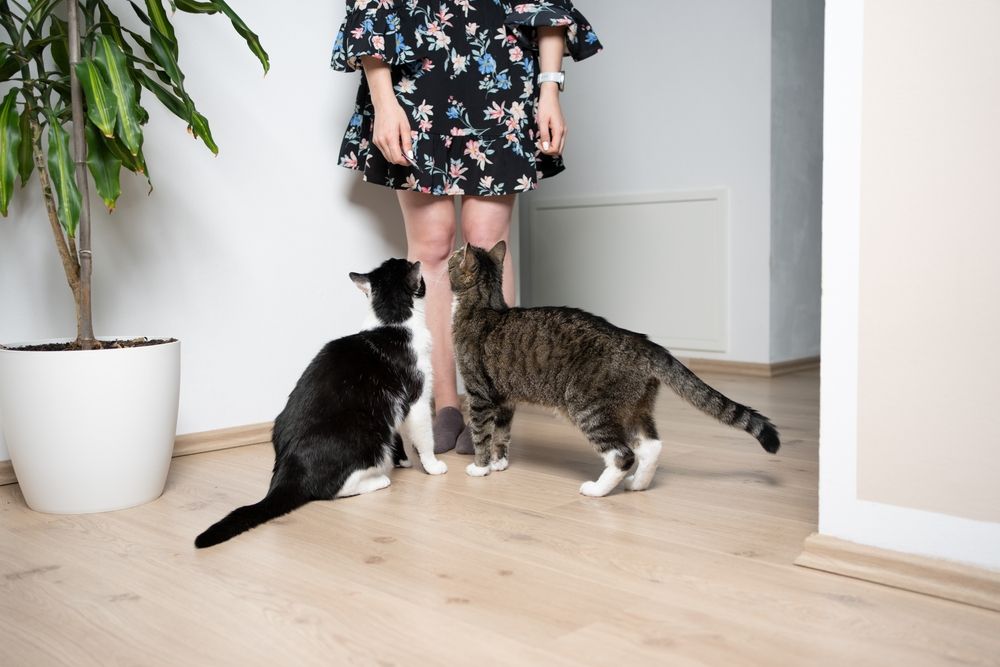
Giving your cat plenty of attention and love can help minimize unwanted behaviors associated with jealousy.
If you think your cat may be jealous or is showing some unusual behaviors, there are plenty of ways that we can support them.
1. Rule Out Health Problems
Some tricky cat behaviors, such as toileting problems or aggression, can be rooted in pain or other medical concerns. If your cat’s habits or behaviors change, always seek advice from a veterinarian. They can perform a full examination to rule out any health problems. Vets can also refer you to a behavioral specialist if more help is needed.
2. Give Slow Introductions
If you have a new pet or person imminently arriving in your household, try and smooth over this tricky time for your cat. Introduce scent first to prepare them for a newcomer, and then follow these steps for a positive and gradual introduction.
3. Provide Enough Resources
Competition between cats can easily lead to jealousy, so if you have more than one cat provide enough resources, so they don’t need to fight over food bowls, litter boxes, toys, or beds. Provide enough for each cat, in different areas of the home – and then one more of each resource, for good measure. So for example, if you have two cats, a good rule of thumb is to provide two litter boxes, plus one extra, for a total of three. Cats are territorial and they don’t like to share.
4. Give Your Time
Many cats highly value our attention and will feel anxious and bereft if they don’t have the chance for some of our time. Modern lives are busy, and it’s easy to get caught up in our day-to-day. Set aside some time for affection, play, and grooming with your cat. This will strengthen the bond that you share, and help them feel loved.
5. Establish a Routine
Cats are funny creatures that are easily upset by changes to the norm. Keep their daily schedule as consistent as possible, especially if there are other changes in the household that they may find difficult.
Can cats feel jealous? It’s difficult to be absolutely sure how aware cats are of their own situation and compare it to others. Still, they certainly seem to react negatively to perceived inequality and change.
Make special, one-on-one time with your cat a part of your daily routine, provide enough resources for multi-cat homes, and introduce change slowly to your cat. Taking these steps will leave you with a happy, secure cat, and a strong bond between the two of you that is rewarding and meaningful.
Also Read: Are Cats Possessive Of Their Owners?
-
Galvan M, Vonk J. Man's other best friend: domestic cats (F. silvestris catus) and their discrimination of human emotion cues. Anim Cogn. 2016 Jan;19(1):193-205. doi: 10.1007/s10071-015-0927-4. Epub 2015 Sep 23. PMID: 26400749.
